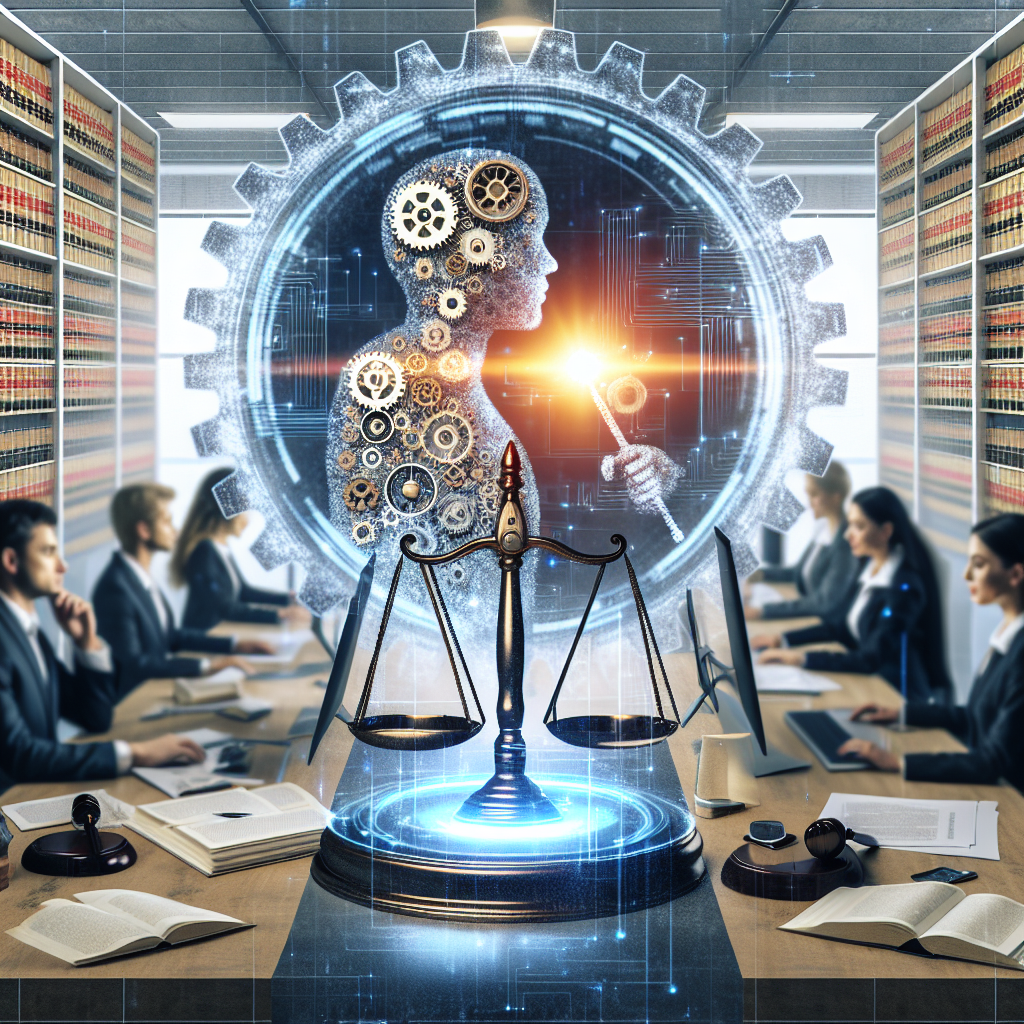Artificial intelligence (AI) automation is transforming virtually every industry, and the legal sector is no exception. With the rapid advancements in AI technology, law firms and legal departments are leveraging AI automation to streamline processes, improve efficiency, and deliver better outcomes for clients. From contract review and legal research to case management and predictive analytics, AI automation is revolutionizing the way legal professionals work.
In this article, we will explore how AI automation is transforming the legal industry and the various ways in which it is being implemented. We will also address common questions and concerns surrounding AI in the legal sector.
How AI Automation is Transforming the Legal Industry
1. Legal Research: One of the most time-consuming tasks for legal professionals is conducting legal research. With the help of AI-powered tools, lawyers can now quickly search through vast amounts of legal data to find relevant cases, statutes, and regulations. AI algorithms can analyze and extract key information from documents, saving lawyers hours of manual research.
2. Contract Review: AI automation is also revolutionizing the contract review process. AI tools can review contracts for potential risks, inconsistencies, and compliance issues, allowing lawyers to focus on high-level analysis and negotiation. By automating contract review, legal teams can reduce errors and ensure that contracts meet legal requirements.
3. Case Management: AI automation is transforming case management by streamlining workflows and improving collaboration among legal teams. AI-powered tools can help lawyers organize case files, track deadlines, and manage communications with clients. By automating routine tasks, lawyers can spend more time on strategic decision-making and case strategy.
4. Predictive Analytics: AI automation enables legal professionals to use predictive analytics to forecast legal outcomes and make data-driven decisions. By analyzing historical data and patterns, AI algorithms can predict the likelihood of success in a case, help lawyers assess risks, and develop winning strategies. Predictive analytics can also help law firms optimize their pricing and resource allocation.
5. Document Automation: AI automation is simplifying document creation and management in the legal industry. AI tools can generate standard legal documents, such as contracts, pleadings, and letters, based on predefined templates and rules. By automating document creation, legal professionals can save time and reduce the risk of errors.
6. Compliance Monitoring: AI automation is helping legal departments monitor regulatory changes and ensure compliance with laws and regulations. AI tools can track updates to legislation, analyze their impact on the business, and alert legal teams to potential compliance risks. By automating compliance monitoring, organizations can mitigate legal exposure and avoid costly penalties.
7. Virtual Assistants: AI-powered virtual assistants are becoming increasingly popular in the legal industry. Virtual assistants can schedule meetings, manage calendars, transcribe meetings, and perform other administrative tasks, allowing lawyers to focus on more strategic work. Virtual assistants can also provide legal research support and answer common legal questions.
8. E-Discovery: AI automation is revolutionizing the e-discovery process by enabling lawyers to quickly search and analyze large volumes of electronic documents in litigation cases. AI algorithms can identify relevant documents, classify them based on relevance and privilege, and streamline the review process. By automating e-discovery, legal teams can reduce costs and improve efficiency.
Common Questions and Concerns about AI in the Legal Industry
1. Is AI automation replacing human lawyers?
AI automation is not replacing human lawyers but rather augmenting their capabilities. While AI tools can automate routine tasks and improve efficiency, human lawyers are still needed for critical thinking, legal analysis, and client interaction. AI automation enables lawyers to focus on higher-level work and deliver better outcomes for clients.
2. Are AI algorithms biased?
AI algorithms can exhibit bias if they are trained on biased data or if they are not properly calibrated. Legal professionals must ensure that AI algorithms are trained on diverse and unbiased data to avoid perpetuating discrimination. Transparency and oversight are essential to mitigate bias in AI algorithms and ensure fair outcomes.
3. Is AI automation secure?
Security is a critical concern when implementing AI automation in the legal industry. Legal professionals must ensure that AI tools comply with data protection regulations, such as GDPR and HIPAA, and implement robust security measures to safeguard sensitive legal information. Encryption, access controls, and regular security audits are essential to protect data privacy.
4. How can legal professionals leverage AI automation?
Legal professionals can leverage AI automation by identifying tasks that are repetitive, time-consuming, or prone to errors and implementing AI-powered tools to streamline these processes. By automating routine tasks, legal professionals can focus on strategic decision-making, client engagement, and value-added services. Training and upskilling are also essential to maximize the benefits of AI automation.
5. What are the ethical implications of AI in the legal industry?
Ethical considerations are paramount when implementing AI automation in the legal industry. Legal professionals must ensure that AI tools comply with professional ethics rules, maintain client confidentiality, and uphold the rule of law. Transparency, accountability, and oversight are essential to address ethical concerns and build trust in AI technology.
In conclusion, AI automation is transforming the legal industry by streamlining processes, improving efficiency, and enhancing outcomes for clients. From legal research and contract review to case management and predictive analytics, AI tools are revolutionizing the way legal professionals work. By leveraging AI automation, legal professionals can deliver better services, optimize resource allocation, and stay competitive in a rapidly changing industry. While there are common questions and concerns surrounding AI in the legal sector, proactive measures can address these challenges and ensure that AI technology benefits both legal professionals and clients.

